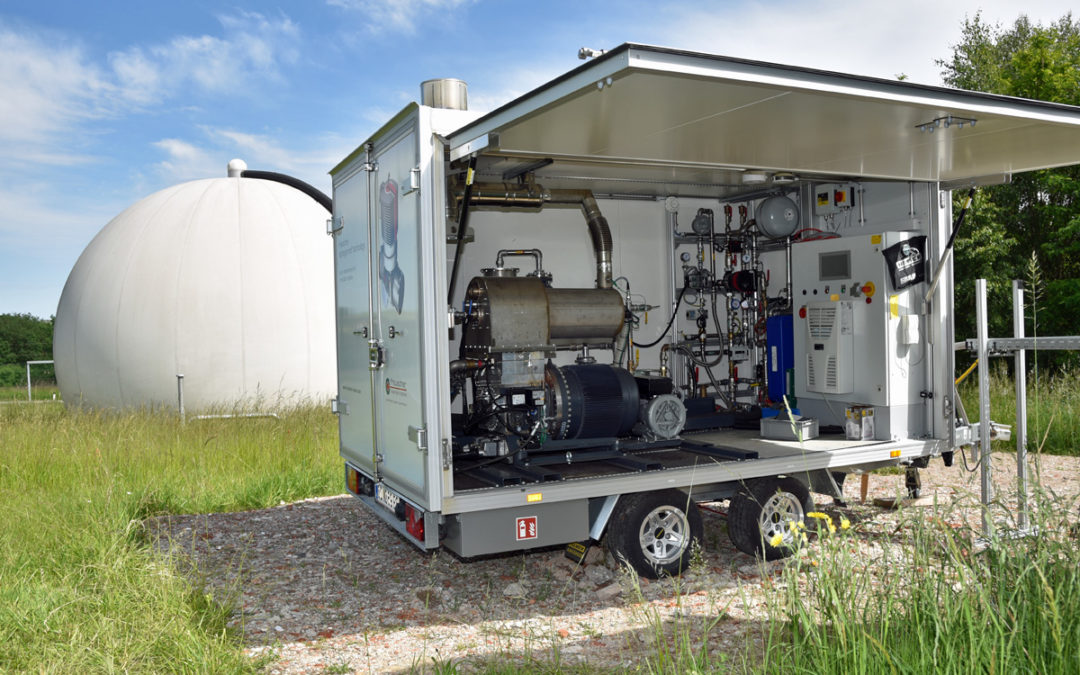After an extensive period of preparation, which in particular also served to fulfill the official requirements, we were able to successfully put our mobile Stirling CHP (combined heat and power plant) into operation on the plant of the landfill operator Gradinger in Ort/Innkreis. The company is the operator of an older landfill whose methane emissions are to be made harmless by oxidation according to regulations.
The long-term test is initially planned for a period of two years and serves as a logical continuation of our research project “Development of a Stirling lean gas CHP”, in the course of which a four-week pilot test has already been carried out.
The aim of the recent field test installation is to gain information about the influence of different gas compositions on efficiency, emissions and the degree of contamination of the burner and air preheating unit over a longer period of time. The maintenance intervals can be determined on the basis of the results. In addition, the experiences are used to assess whether technical cleaning equipment is required for trouble-free operation of the CHP.
The central element of the CHP is the Stirling engine, which is constructed as a unit with an asynchronous generator, gas burner and combustion air preheating. The performance data of the machine, which was operated under the same conditions in the course of the pilot test, are recorded in the log of our research partner Best-Bioenergy.
“In this context, we can proudly point out the overall electrical efficiency of 30%, which is impressive for lean gas operation,” says Josef Frauscher. The managing director of frauscher thermal motors GmbH continues: “Especially in times of rising energy prices and uncertain natural gas supplies, we consider it a social necessity to promote the energetic use of weak and biogas, especially since such applications are also an ideal compensation for volatile solar and wind energy”.
Header picture: frauscher thermal motors

